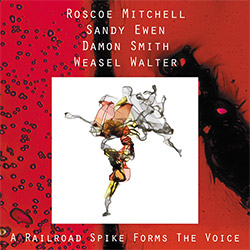
The first meeting between Art Ensemble of Chicago saxophone legend Roscoe Mitchell and the long running improvisational trio of Sandy Ewen (guitar), Damon Smith (double bass) and Weasel Walter (drums), in an epic 72-minute recording captured live at Duende in Oakland, CA in 2014, an amazing display contrasting control & chaos, form and deconstruction; exemplary!
In Stock
Quantity in Basket: None
Log In to use our Wish List
Shipping Weight: 3.00 units
EU & UK Customers:
Discogs.com can handle your VAT payments
So please order through Discogs
Sample The Album:
Roscoe Mitchell-saxophones
Sandy Ewen-guitar
Damon Smith-double bass
Weasel Walter-drums
Click an artist name above to see in-stock items for that artist.
6-panel digipak features artwork by Sandy Ewen and extensive liner notes by Clifford Allen.
UPC: 198000057220
Label: ugEXPLODE
Catalog ID: ugEXPLODE 82
Squidco Product Code: 30464
Format: CD
Condition: New
Released: 2021
Country: USA
Packaging: Digipack
Recorded Live at Duende in Oakland, California, on April 11th, 2014.
"This recording features the first time meeting between Art Ensemble of Chicago saxophone legend Roscoe Mitchell and the long running improvisational trio of Sandy Ewen (guitar), Damon Smith (double bass) and Weasel Walter (drums). This 72 minute piece is a no-holds-barred display of musical abstraction, savagely deconstructing both form and instrumental technique in equal amounts.
Mitchell's signature flinty, probing reed outbursts poke with persistence through the unpredictable chasms created by the extreme counterpoint of the ensemble interplay.
Ewen, who prefers to eschew electronic gadgetry to concentrate on new means of coaxing unknown timbres from her guitar, speaks in alien tongues teased out by friction and interference from foreign objects and her stereo deployment adds a spatial element to the soundscape.
Damon Smith is a staunch modernist. His deployment of the contrabass as a means of deliberately brusque deconstruction offers constant tension against the pointillistic warfare of Weasel Walter's idiosyncratic percussion assault.
This is not a free jazz record. Nobody plays all the time. Surprise and contrast run rampant. The group is available for parties and bar mitzvahs. "-ugEXPLODE
"Don't follow."
That's the admonition saxophonist and composer Roscoe Mitchell (b. 1940) was known to give his students at Oakland's Mills College in one-on-one sessions. In musical communication and creation, not following or directly responding to others is central to Mitchell's philosophy and approach. As he said to me in a recent conversation, "I just let things develop with my intent, with my work, and I've never been a person that went around looking for people to play with. I mostly just work on my music and let things unfold, being that I'm a true believer in that you set your own environment and then you let it unwind on its own. I think the main thing is to concentrate on your music and the various ways that you develop it." Building on a decades-long tenure as one of creative music's leading minds, Mitchell began teaching at Mills in Fall 2007 and retired in 2019. He also taught at CalArts, the University of Wisconsin in Madison (where he now lives), and the University of Illinois. Spurred by artist-educators like Mitchell, Mills' graduate program in Performance and Literature, which includes Improvisation as a core tenet, has been a key component of the Bay Area music community.
Mitchell is unflaggingly focused on his own practice as a soloist and composer, the latter often including large-scale works for orchestra. His predilection for collaborators that he can regularly practice or study with results in fewer one-off meetings that could shake things loose. That said, he is adamant about "always learning" and the importance of constant reflection and growth cannot be understated. Therefore, this collaboration with the working trio of guitarist Sandy Ewen, bassist Damon Smith, and drummer Weasel Walter is among the more intriguing meetings to emerge in his discography. It presents a situation that is both new and an example of each musician's devotion to their art, spurred on by curiosity and conviction. A Railroad Spike Forms the Voice (its title drawn from a poem by late and longtime Mitchell collaborator Joseph Jarman) was recorded in April 2014 at Oakland's Duende, a restaurant and venue run by free music connoisseur and chef Paul Canales. Smith and Walter had been part of a workshop performance Mitchell directed at Mills (though neither attended the school). The saxophonist reconnected with Smith and was introduced to Ewen's music at a 2012 workshop in Houston. As the bassist relates, "Roscoe criticized everyone there except for Sandy. She was doing her thing, and he said to a saxophone player 'why don't you play like her? I can listen to what she's doing for hours, this is great.' When he asked what Weasel and I were up to, I told him that we just made a trio record with Sandy and he said he'd like to hear it." According to Ewen, Mitchell played their first trio album (ugEXPLODE ug53) for Mills students as an example of quality improvised music, and that sowed further seeds for an eventual meeting.
The Ewen/Smith/Walter trio came about in 2011; Smith had relocated to Houston and linked up in a duo with Ewen, subsequently bringing Weasel to Texas for a series of concerts from which the trio concept would take root. Since that time they have recorded three CDs (two eponymously titled albums on ugEXPLODE and Live in Texas, a split release on Chiastic Society and Balance Point Acoustics) and performed live on numerous occasions, including expanded lineups with trumpeter Peter Evans, trombonist Jeb Bishop, or saxophonist Jim Sauter, as well as with Mitchell. As a result of this work, their identity as a unit has become quite singular if somewhat fluid within its circumstances. As Ewen tells it, "I can't tell if it's evolved or if it's the fact that when we record it's always going to be different. I don't know if the group is actually shifting or if it's just random snippets of what we sound like on any particular day." Walter opines that "it's interesting to think that there would be an expectation of what our trio sounds like - it's kind of terrifying to me. I think part of our mutual interest in playing with each other is that each person has a very distinctive musical personality, and that individuality and the counterpoint that results is really important to us."
The environment around the Duende concert was positive - Smith and Walter were in the Bay Area recording with guitarists Henry Kaiser and Ray Russell while Ewen had gigs nearby, and as the bassist puts it, "we were all in a good mood and it was a fun trip. We were excited to play with Roscoe and even Weasel, when the prospect of playing with him came up, was excited - and he doesn't get excited very easily!" The concert itself was very well attended, in part because the combination of musicians was somewhat unexpected. Guitarist/composer Karl Evangelista, who studied with Mitchell at Mills and attended the performance, recalled that "you had two people who were really deep in the free jazz vernacular and they knew what Roscoe did, which is that Roscoe just plays, and Sandy's also kind of solipsistic - not in a negative sense but she's also not going to trade free jazz licks either. That was the interaction or the potential that I think everyone was fascinated by." The set consisted of one long piece without breaks or interruptions and no encore, introspective and churning through events, actions, and inquiries.
Though on paper A Railroad Spike Forms the Voice might look like a guest soloist with free improvisation rhythm section, the session does not operate that way, either on disc or as an event. Significant space is given to solos, duos, and trios, and the piece is as much about, as Smith says, the fact that "we felt obligated to give him our music, which is a little bit different than a meeting with an old master in that sense." It is a collective sharing of information and approaches, responses and diversions that spiral off into alternate paths or worlds, with silence just as valid an interpretation as sparks that fly. Known for his wide palette of horns, Mitchell here favors sopranino, soprano, and alto saxophones and exalts in closely valued hues and narrowly demarked areas, further accentuating the isolation or apartness of his music. One focus of his instrumental research is Baroque and early music, its crotchety intonation and perceived stasis an unsurprising affinity.
This is a recording that is monumental in scope, singular but also parsable. There are sections that hark back to the disjunctive spars of early Art Ensemble of Chicago recordings - at 26 minutes in, Smith walks alongside laconic, acrid alto saxophone tendrils, their movements punctuated by kit jabs and gradual guitar creep. Unhurriedness is not something one expects with Smith and Walter, and it's not deference either. Their ears put the proceedings into a state of mindful creation and allow any ensuing fireworks a sense of necessity and logic. As Mitchell untethers long soprano lines and puckered subtones, a froth of allover patter and meaty scribble emerges underneath and around him, but one can parse the latticework of activity into numerous converging (or parallel) threads and components. A tug-of-war between low bass gurgle, crinkling guitar strings, and high-pitched, hoarse sopranino cries acts as both one and three organisms in gloriously present interaction, nodding at one another but tending a greater fire. Not only do Ewen, Smith, and Walter not follow or ping-pong off of Mitchell, but they don't do this with one another, either. A Railroad Spike Forms the Voice is a sprawling essay on communication and connection, its title apt: these four creative minds have set forth on a unified steely path, punctuated by decisive beauty and realness. We're lucky to be able to participate from our vantage point."-Clifford Allen, Brooklyn, March 2021
6-panel digipak features artwork by Sandy Ewen and extensive liner notes by Clifford Allen.

The Squid's Ear!
Artist Biographies
• Show Bio for Roscoe Mitchell "Roscoe Mitchell (born August 3, 1940) is an American composer, jazz instrumentalist, and educator, known for being "a technically superb - if idiosyncratic - saxophonist." The Penguin Guide to Jazz described him as "one of the key figures" in avant-garde jazz; All About Jazz states that he has been "at the forefront of modern music" for the past 35 years. Critic Jon Pareles in The New York Times has mentioned that Mitchell "qualifies as an iconoclast." In addition to his own work as a bandleader, Mitchell is known for cofounding the Art Ensemble of Chicago and the Association for the Advancement of Creative Musicians (AACM). Mitchell was born in Chicago, Illinois. He also grew up in the Chicago area, where he played saxophone and clarinet at around age twelve. His family was always involved in music with many different styles playing in the house when he was a child as well as having a secular music background. His brother, Norman, in particular was the one who introduced Mitchell to jazz. While attending Englewood High School in Chicago, he furthered his study of the clarinet. In the 1950s, he joined the United States Army, during which time he was stationed in Heidelberg, Germany and played in a band with fellow saxophonists Albert Ayler and Rubin Cooper, the latter of which Mitchell commented "took me under his wing and taught me a lot of stuff." He also studied under the first clarinetist of the Heidelberg Symphony while in Germany. Mitchell returned to the United States in the early 1960s, relocated to the Chicago area, and performed in a band with Wilson Junior College undergraduates Malachi Favors (bass), Joseph Jarman, Henry Threadgill, and Anthony Braxton (all saxophonists). Mitchell also studied with Muhal Richard Abrams and played in his band, the Muhal Richard Abrams' Experimental Band, starting in 1961. In 1965, Mitchell was one of the first members of the non-profit organization Association for the Advancement of Creative Musicians (AACM) along with Jodie Christian (piano), Steve McCall (drums), and Phil Cohran (composer). The following year Mitchell, Lester Bowie (trumpet), Kalaparusha Maurice McIntyre (tenor saxophone), Favors, Lester Lashley (trombone), and Alvin Fielder (drums), recorded their first studio album, Sound. The album was "a departure from the more extroverted work of the New York-based free jazz players" due in part to the band recording with "unorthodox devices" such as toys and bicycle horns. From 1967 Mitchell, Bowie, Favors and, on occasion, Jarman performed as the Roscoe Mitchell Art Ensemble, then the Art Ensemble, and finally in 1969 were billed as the Art Ensemble of Chicago. The group included Phillip Wilson on drums for short span before he joined Paul Butterfield's band. The group lived and performed in Europe from 1969 to 1971, though they arrived without any percussionist after Wilson left. To fill the void, Mitchell commented that they "evolved into doing percussion ourselves." The band did eventually get a percussionist, Don Moye, who Mitchell had played with before and was living in Europe at that time. For performances, the band often wore brilliant African costumes and painted their faces. The Art Ensemble of Chicago have been described as becoming "possibly the most highly acclaimed jazz band" in the 1970s and 1980s. Mitchell and the others returned to the States in 1971. After having been back in Chicago for three years, Mitchell then established the Creative Arts Collective (CAC) in 1974 that had a similar musical aesthetic to the AACM. The group was based in East Lansing, Michigan and frequently performed in auditoriums at Michigan State University. Mitchell also formed the Sound Ensemble in the early 1970s, an "outgrowth of the CAC" in his words, that consisted mainly of Mitchell, Hugh Ragin, Jaribu Shahid, Tani Tabbal, and Spencer Barefield. In the 1990s, Mitchell started to experiment in classical music with such composers/artists such as Pauline Oliveros, Thomas Buckner, and Borah Bergman, the latter two of which formed a trio with Mitchell called Trio Space. Buckner was also part of another group with Mitchell and Gerald Oshita called Space in the late 1990s. He then conceived the Note Factory in 1992 with various old and new collaborators as another evolution of the Sound Ensemble. He lived in the area of Madison, Wisconsin and performed with a re-assembled Art Ensemble of Chicago. In 1999, the band was hit hard with the death of Bowie, but Mitchell fought off the urge to recast his position in the group, stating simply "You can't do that" in an interview with Allaboutjazz.com editor-in-chief Fred Jung. The band continued on despite the loss. Mitchell has made a point of working with younger musicians in various ensembles and combinations, many of whom were not yet born when the first Art Ensemble recordings were made. Mainly from Chicago, these players include trumpeter Corey Wilkes, bassist Karl E. H. Seigfried, and drummer Isaiah Spencer. In 2007, Mitchell was named Darius Milhaud Chair of Composition at Mills College in Oakland, California, where he currently lives. Mitchell was chosen by Jeff Mangum of Neutral Milk Hotel to perform at the All Tomorrow's Parties festival in March 2012 in Minehead, England." ^ Hide Bio for Roscoe Mitchell • Show Bio for Sandy Ewen "Sandy Ewen was born in Toronto, Canada in 1985, Sandy Ewen received a Bachelor of Architecture from the University of Texas at Austin in 2008. Since then she has resided in Houston, TX where she pursues musical and visual projects and her architecture license. Ewen has released several albums, including a duo with guitarist Tom Carter, a trio with bassist Damon Smith & drummer Weasel Walter, and a rock album with Austin's Weird Weeds. Ewen's visual work is closely tied to her work in sound; she uses both mediums to explore texture, composition and materials. Ewen's microcollages, enlarged through projection and digital printing, are an exploration of material and technique. Using a unique process pioneered by the artist, natural materials and polymers are torn, liquefied, scorched, melted, cut, and fused. When enlarged, the microscopic nuances of these manipulations are manifested in exquisite detail. Ewen has presented prints of her work at 14 Pews (2012), Spacetaker/Fresh Arts (2012), Khon's (2013) & Galeria Regina (2014). As an improviser in both art and music, Ewen sees herself as guiding materials and space rather than executing a preconceived composition. "I like to explore mediums and materials and tease out their essence," says Ewen. "Working with slide projections has focused my eye on the subtitles of natural processes of decay and transformation. Through my work, I am asking questions of the materials rather than dictating answers." " ^ Hide Bio for Sandy Ewen • Show Bio for Damon Smith "Damon Smith studied double bass with Lisle Ellis and has had lessons with Bertram Turezky, Joëlle Leandré, John Lindberg, Mark Dresser and others. Damon's explorations into the sonic palette of the double bass have resulted in a personal, flexible improvisational language based in the American jazz avant-garde movement and European non-idiomatic free improvisation. Visual art, film and dance heavily influence his music, as evidenced by his CAMH performance of Ben Patterson's Variations for Double Bass, collaborations with director Werner Herzog on soundtracks for Grizzly Man and Encounters at the End of the World, and an early performance with the Merce Cunningham Dance Company. Damon has collaborated with a wide range of musicians, including: Cecil Taylor, Marshall Allen (of Sun Ra's Arkestra), Henry Kaiser, Roscoe Mitchell, Michael Pisaro, Wadada Leo Smith, Marco Eneidi, Wolfgang Fuchs, Peter Brötzmann and Peter Kowald. After many years in the San Francisco Bay Area, and five great years in Houston, Texas working regularly with Alvin Fielder, Sandy Ewen, David Dove & Chris Cogburn, Damon will move to the Boston area in the fall of 2016. Damon has run Balance Point Acoustics record label since 2001, releasing music focusing on transatlantic collaborations between US and European musicians." ^ Hide Bio for Damon Smith • Show Bio for Weasel Walter "Weasel Walter (real name Walter Wyzowski) is a composer and instrumentalist who founded the band The Flying Luttenbachers in Chicago in 1991 with a current member of Cellular Chaos and Behold...The Arctopus. Over the years, The Flying Luttenbachers included noted Dylan Posa, and Michael Colligan, while creating a body of music drawing equally from no wave, death metal, gamelan, noise music, hardcore punk and modern classical. Walter moved to the San Francisco Bay Area in 2003, where he formed the latest of many Luttenbachers lineups, remaining on percussion with the addition of bassist Mike Green (Burmese), and virtuoso guitarist Ed Rodriguez (ex-Colossamite, Gorge Trio). Singular guitar phenomenon Mick Barr (Krallice, Octis, Orthrelm) joined the group in 2005. The Flying Luttenbachers ceased to operate in late 2007. On November 25, 2009, Weasel Walter announced that he was moving to New York City to join the band Behold... The Arctopus on drums and will be writing "new, more extreme material from scratch." He also formed Cellular Chaos with Marc Edwards (drummer), Admiral Grey and Ceci Moss." ^ Hide Bio for Weasel Walter
1/14/2026
Have a better biography or biography source? Please Contact Us so that we can update this biography.
1/14/2026
Have a better biography or biography source? Please Contact Us so that we can update this biography.
1/14/2026
Have a better biography or biography source? Please Contact Us so that we can update this biography.
1/14/2026
Have a better biography or biography source? Please Contact Us so that we can update this biography.
Track Listing:
1. A Railroad Spike Forms The Voice 1:12:23
Improvised Music
Jazz
Free Improvisation
West Coast/Pacific US Jazz
Quartet Recordings
Staff Picks & Recommended Items
Search for other titles on the label:
ugEXPLODE.

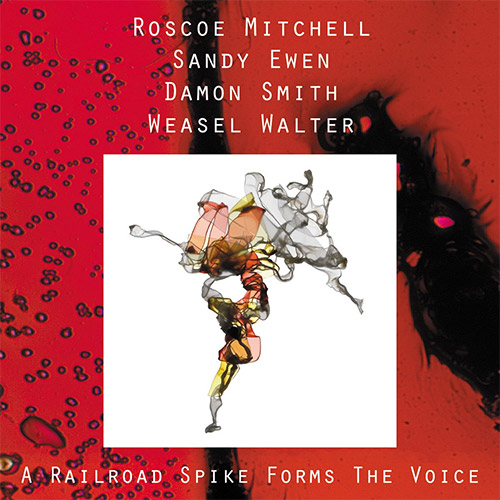
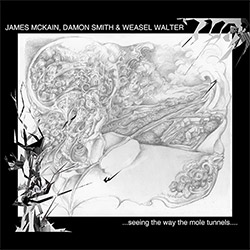


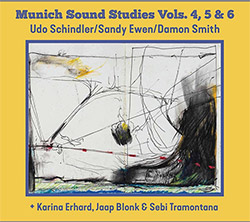

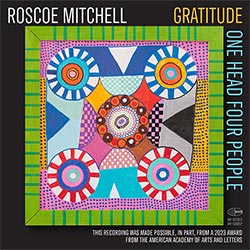
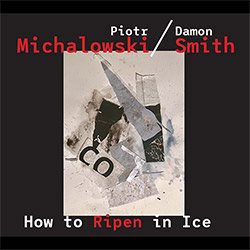


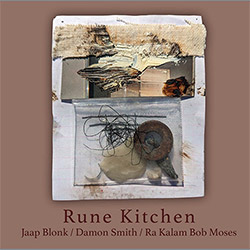


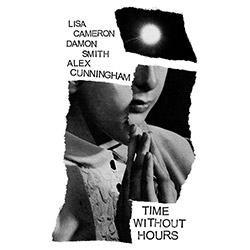
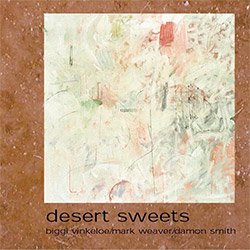
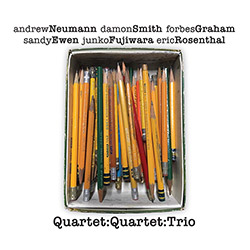
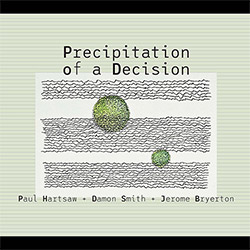


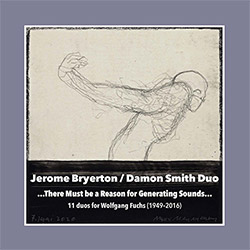
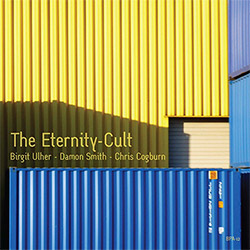
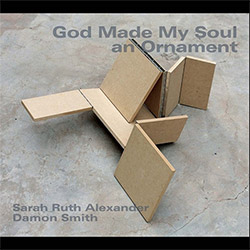


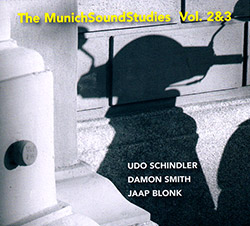





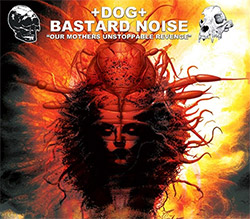



![Parker, Evan / Andrea Centazzo: Bullfighting On Ice! Live In Padova 1977 [VINYL]](https://www.teuthida.com/productImages/misc4/37064.jpg)
![Curran, Alvin / Andrea Centazzo / Evan Parker: Real Time [VINYL]](https://www.teuthida.com/productImages/misc4/37065.jpg)
![Curran, Alvin / Andrea Centazzo / Evan Parker: Real Time Two [VINYL]](https://www.teuthida.com/productImages/misc4/37066.jpg)

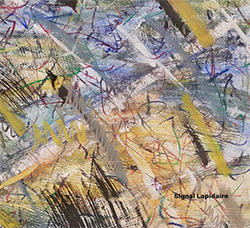

![Rodrigues, Ernesto / Jung-Jae Kim / Guilherme Rodrigues / Eric Bauer / Stephen Flinn: 5 In The Afternoon [2CDs]](https://www.teuthida.com/productImages/misc4/36957.jpg)

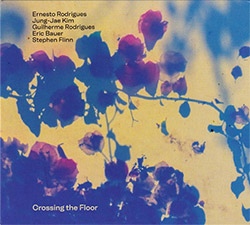





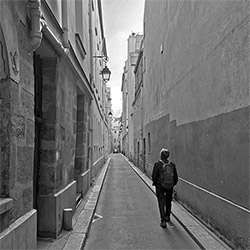
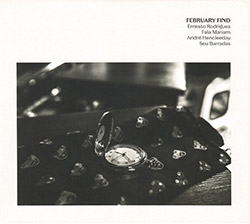




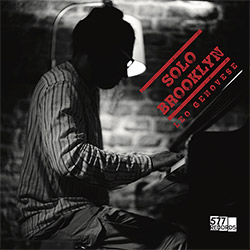
![Coley, Byron / Mats Gustafsson / Thurston Moore: Now Jazz Now: 100 Essential Free Jazz & Improvisation Recordings (1960-80) [BOOK]](https://www.teuthida.com/productImages/misc4/36932.jpg)
![Evans, Peter / Being & Becoming: Ars Ludricra [VINYL + DOWNLOAD]](https://www.teuthida.com/productImages/misc4/37026.jpg)
![HobbyHouse (Mia Dyberg / Axel Filip): HobbyHouse [CD + DOWNLOAD]](https://www.teuthida.com/productImages/misc4/36944.jpg)
![Mines, Kelsey / Erin Rogers: Scratching At The Surface [CD + DOWNLOAD]](https://www.teuthida.com/productImages/misc4/36945.jpg)
![Nebbia, Camila (feat/ Marilyn Crispell / Lesley Mok): A Reflection Distorts Over Water [CD + DOWNLOAD]](https://www.teuthida.com/productImages/misc4/36946.jpg)
![Vanheerentals, Adia: Taking Place [CD + DOWNLOAD]](https://www.teuthida.com/productImages/misc4/36947.jpg)
![Mines, Kelsey / Vinny Golia: Collusion and Collaboration [CD + DOWNLOAD]](https://www.teuthida.com/productImages/misc4/36948.jpg)
![Parkins, Zeena: Lament For The Maker [CD + DOWNLOAD]](https://www.teuthida.com/productImages/misc4/36949.jpg)
![Evans, Peter / Mike Pride : A Window, Basically [CD + DOWNLOAD]](https://www.teuthida.com/productImages/misc4/36950.jpg)
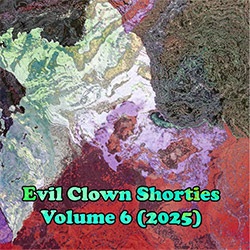
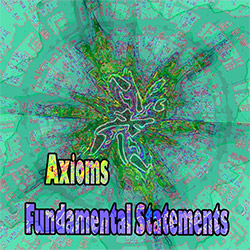

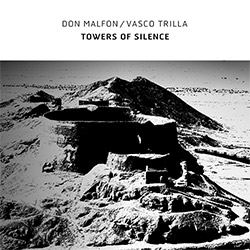
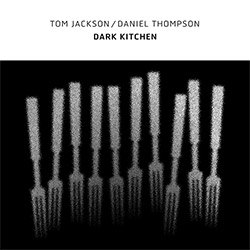

![Agnel, Sophie: Learning [VINYL]](https://www.teuthida.com/productImages/misc4/36841.jpg)
![Monaco, Amanda (w/ Michael Attias / Sean Conly / Satoshi Takeishi) : Deathblow [VINYL+ DOWNLOAD]](https://www.teuthida.com/productImages/misc4/36956.jpg)
![Belorukov, Ilia / Alex Riva: Wrestling For Futility [CASSETTE w/DOWNLOAD]](https://www.teuthida.com/productImages/misc4/36994.jpg)


![Genthon, Anouck / Lionel Marchetti: Suite Blanche [2 CDs]](https://www.teuthida.com/productImages/misc4/36642.jpg)
![Toeplitz, Kasper T.: Erosions Programmees [CD + BOOKLET]](https://www.teuthida.com/productImages/misc4/36639.jpg)
![Gate, The : Almost Live [CASSETTE + MAGAZINE]](https://www.teuthida.com/productImages/misc4/36836.jpg)






![A Magic Whistle: The Solar Cell [VINYL]](https://www.teuthida.com/productImages/misc4/36658.jpg)

![McGee, Hal: Columbus Expedition [Cassette w/ Download]](https://www.teuthida.com/productImages/misc4/36650.jpg)


![Jaeger, Kassel: Fernweh [VINYL 2 LPs]](https://www.teuthida.com/productImages/misc4/36541.jpg)





![+DOG+: The Light Of Our Lives [2 CDs]](https://www.teuthida.com/productImages/misc4/36009.jpg)


![Frey, Jurg : Composer, Alone [3 CDs]](https://www.teuthida.com/productImages/misc4/36927.jpg)








![Frey, Jurg with ensemble]h[iatus: Je Laisse A La Nuit Son Poids D](https://www.teuthida.com/productImages/misc4/36988.jpg)




![Pisaro-Liu, Michael: Within (2) / Appearance (2) [2 CDs]](https://www.teuthida.com/productImages/misc4/36831.jpg)










![Musicworks Magazine: #151 Summer 25 [MAGAZINE + CD]](https://www.teuthida.com/productImages/misc4/36559.jpg)

![Brown, Dan / Dan Reynolds: Live At The Grange Hall [unauthorized][CASSETTE]](https://www.teuthida.com/productImages/misc4/36245.jpg)



![Zorn, John: The Song of Songs [CD + CD BOOK]](https://www.teuthida.com/productImages/misc4/36923.jpg)

![Coultrain: Mundus [COLORED VINYL]](https://www.teuthida.com/productImages/misc4/33056.jpg)
![Hprizm: Signs Remixed [COLORED VINYL]](https://www.teuthida.com/productImages/misc4/30635.jpg)
![Halls Of the Machine: All Tribal Dignitaries [CASSETTE w/ DOWNLOAD]](https://www.teuthida.com/productImages/misc4/36134.jpg)



![Koenjihyakkei: Live at Club Goodman [2 CDs]](https://www.teuthida.com/productImages/misc4/36111.jpg)

![Sorry For Laughing (G. Whitlow / M. Bates / Dave-Id / E. Ka-Spel): Rain Flowers [2 CDS]](https://www.teuthida.com/productImages/misc4/35985.jpg)

![Rolando, Tommaso / Andy Moor : Biscotti [CASSETTE w/ DOWNLOADS]](https://www.teuthida.com/productImages/misc4/36106.jpg)


![Electric Bird Noise / Derek Roddy: 8-10-22 [CD EP]](https://www.teuthida.com/productImages/misc4/35970.jpg)








![Elephant9 : Mythical River [VINYL]](https://www.teuthida.com/productImages/misc4/34624.jpg)



![Elephant9 with Terje Rypdal: Catching Fire [VINYL 2 LPs]](https://www.teuthida.com/productImages/misc4/35355.jpg)
![Coley, Byron: Dating Tips for Touring Bands [VINYL]](https://www.teuthida.com/productImages/misc4/17906.jpg)

![Lost Kisses: My Life is Sad & Funny [DVD]](https://www.teuthida.com/productImages/misc4/lostKissesDVD.jpg)